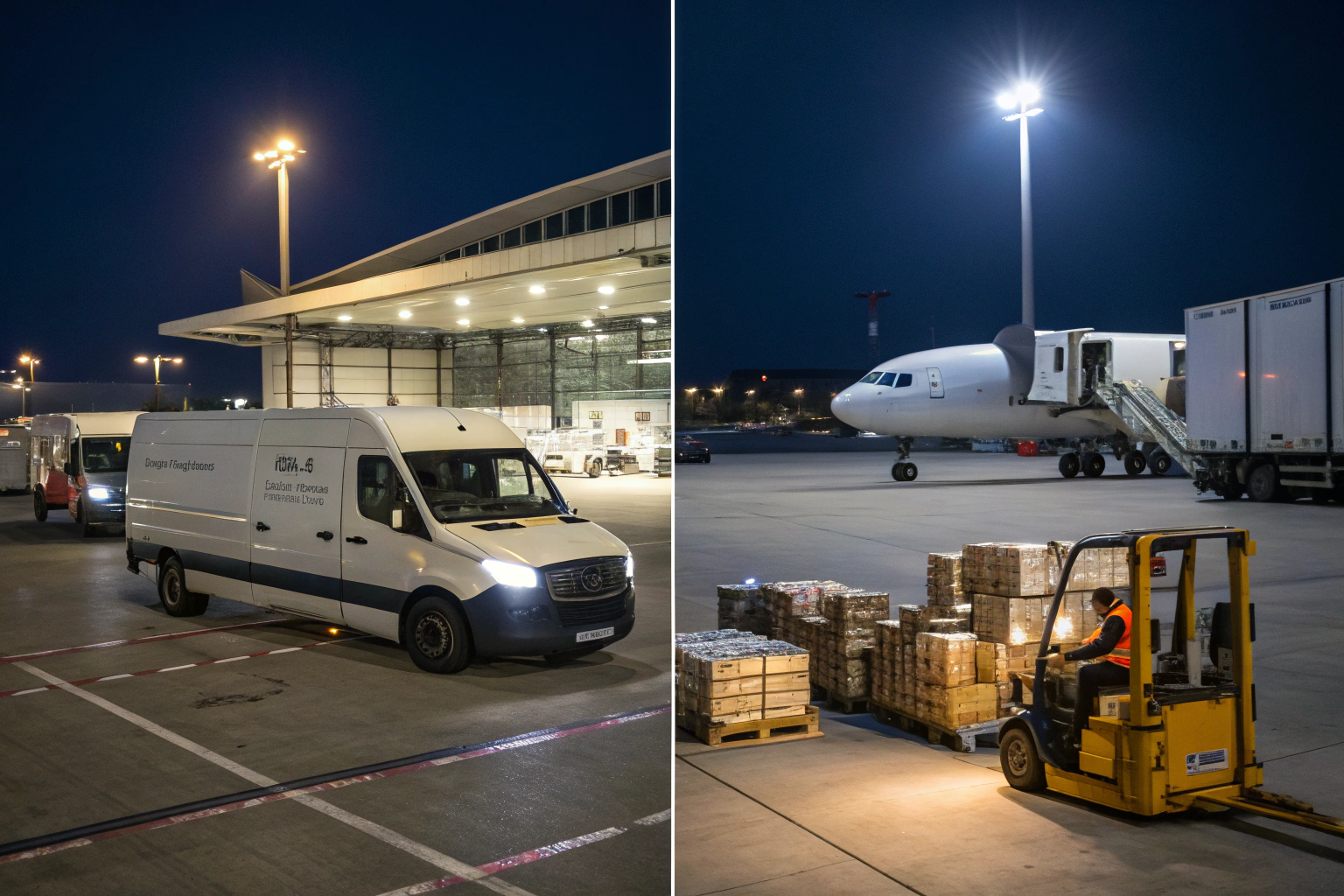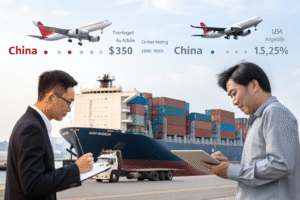When clients ask me about international transport, one of the most common sources of confusion is the difference between express shipping and air freight. Both use aircraft, both move goods faster than ocean freight, and both connect markets worldwide. Yet, in practice, they serve very different purposes in global supply chains.
Express shipping is a courier-based, door-to-door solution for small and urgent packages, while air freight is a forwarder-managed, airport-to-airport system for heavier cargo.
From my academic background in supply chain studies and my professional practice in freight forwarding, I know that the wrong choice between these two methods can result in wasted money, missed deadlines, or disrupted production schedules. Let’s explore the real differences step by step.
How does express shipping work?
Express shipping is a premium logistics service managed by integrated couriers such as DHL, FedEx, and UPS. These companies operate their own global networks, including aircraft, hubs, customs services, and last-mile delivery vehicles.
Express shipping guarantees fast, door-to-door delivery, usually within 2–5 business days.
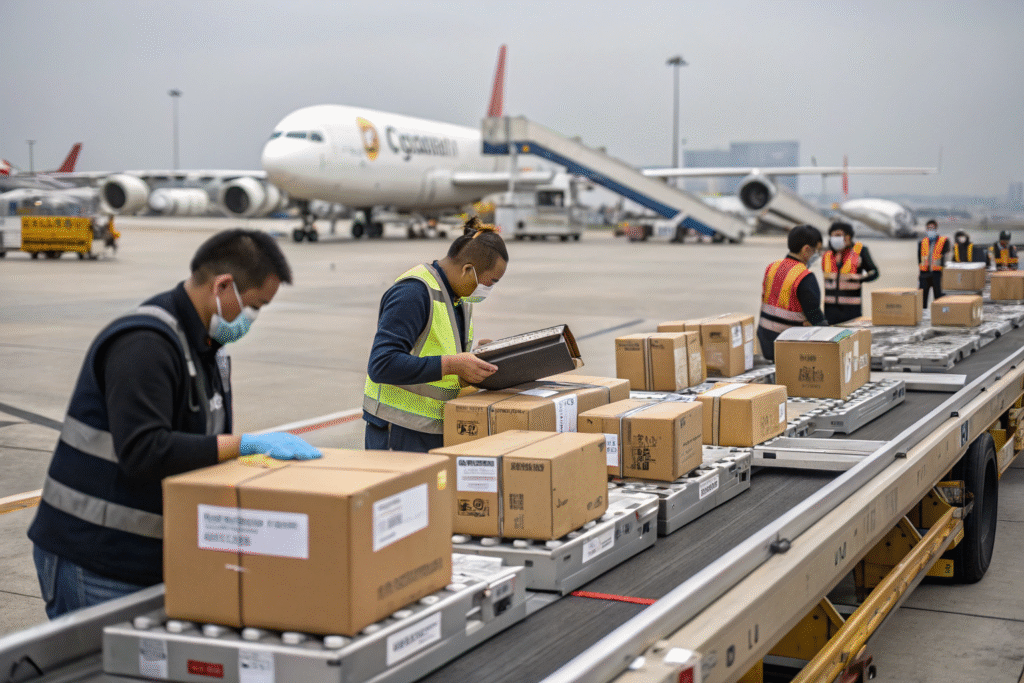
Why is express so fast?
Express carriers integrate every stage of transport. For example, DHL Express operates its own customs brokerage and flight schedules, ensuring that shipments rarely leave their network. This eliminates third-party delays.
What type of cargo fits express shipping?
Express is ideal for documents, samples, high-value electronics, or urgent replacements. Companies often use FedEx International Priority when product launches or contracts depend on overnight delivery.
How does standard air freight operate?
Air freight, in contrast, functions as a broader logistics model. Airlines provide cargo space, while freight forwarders like us arrange bookings, ground handling, and customs clearance.
Air freight is slightly slower, usually 5–10 days, but it accommodates larger, heavier cargo than express.
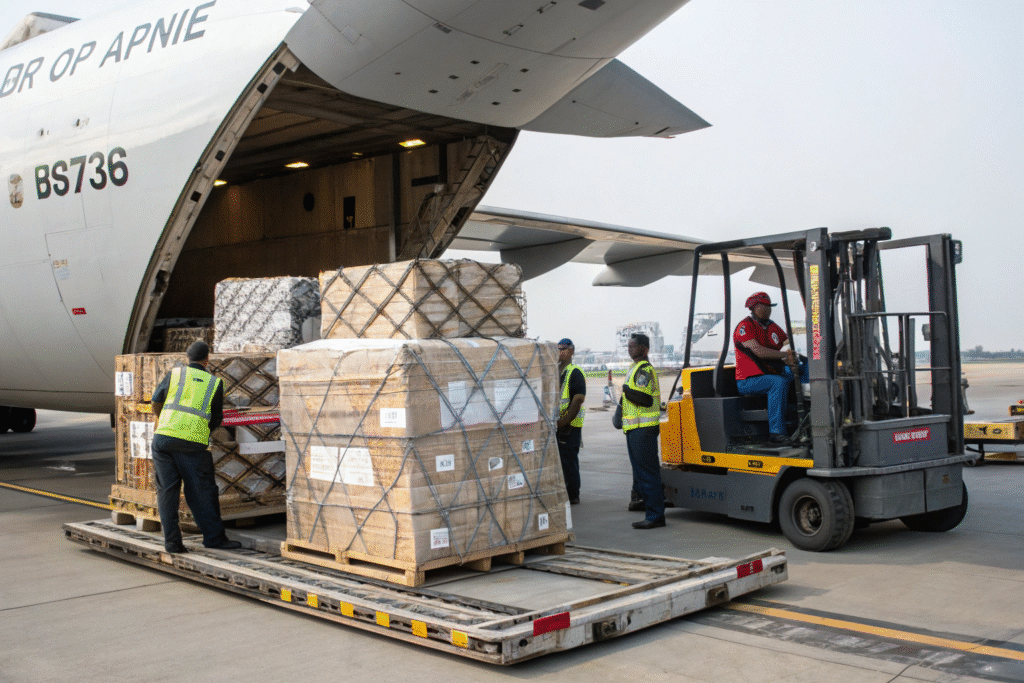
Why does air freight take longer?
Unlike express couriers, air freight relies on multiple actors: airlines, ground handlers, and freight forwarders. For instance, Emirates SkyCargo provides cargo capacity, but forwarders consolidate shipments and manage customs. This multi-layer structure adds time but enables flexibility.
What goods use air freight?
Air freight is chosen for high-value, bulky, or seasonal goods such as apparel, machinery, or spare parts. According to IATA, air freight represents over 35% of global trade by value, even though it accounts for less than 1% by volume.
Which method is more cost-effective?
Cost is the most decisive factor when choosing between express and air freight.
Express costs significantly more per kilogram because it includes speed, customs brokerage, and last-mile delivery. Air freight offers lower rates for higher volumes.
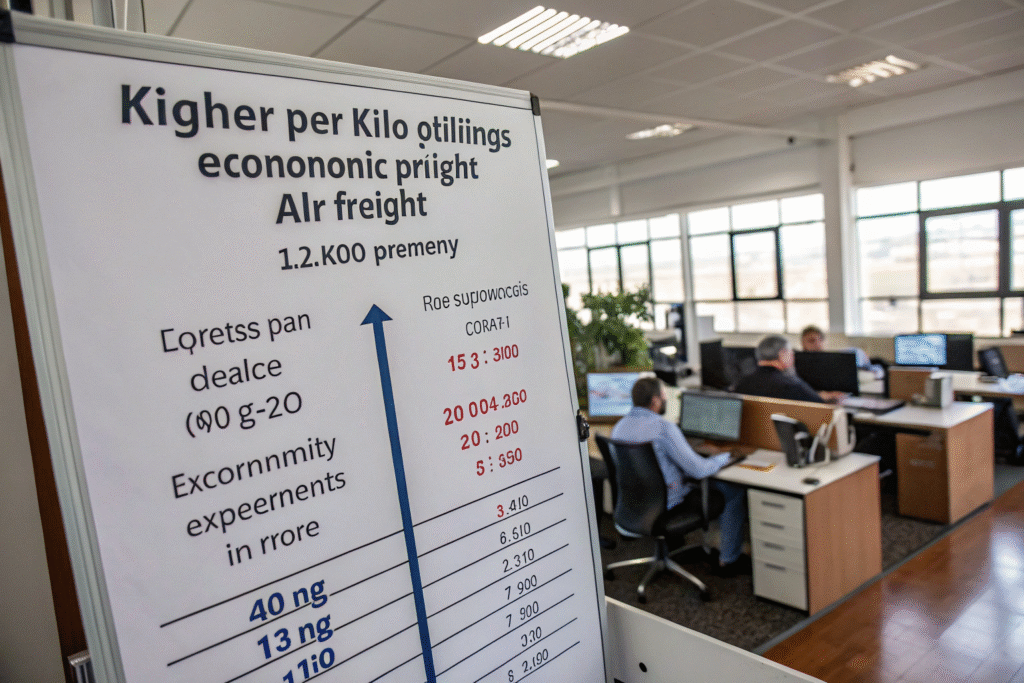
Why is express more expensive?
The UPS Express Saver product charges premiums because it promises guaranteed transit times. Clients essentially pay for control, speed, and risk reduction.
When is air freight more economical?
For shipments above 100–150 kg, air freight provides substantial savings. Platforms like Freightos allow shippers to compare live quotes from multiple airlines and forwarders. Businesses importing bulk apparel or electronics typically save thousands by using air freight instead of express.
How should businesses decide between the two?
The choice depends on urgency, volume, and budget. From an academic perspective, it is a classic trade-off between lead time and logistics cost. From a practical freight forwarding perspective, it is about risk management and operational planning.
Express shipping is the best option when time is critical, while air freight balances cost and speed for larger loads.

When should you choose express?
Medical supplies, product samples, or legal documents should always move by express. For instance, FedEx SameDay even offers delivery within 24 hours for extreme cases.
When should you choose air freight?
Air freight is more suitable for cargo like seasonal fashion collections or industrial components, where a few days of extra transit time is acceptable. By using professional forwarders who optimize routes, businesses can reduce costs and still meet production deadlines.
Conclusion
The academic framework of supply chain management tells us that every logistics decision balances speed, cost, and reliability. Express shipping and air freight illustrate this perfectly: one offers maximum speed for small parcels at high cost, while the other provides cost-efficient capacity for larger shipments.
From my professional practice, I advise clients to evaluate three questions before deciding: How urgent is the cargo? How heavy is it? What budget is available? By aligning these answers with the right shipping model, businesses can protect their margins and ensure supply chain resilience. Partnering with an experienced freight forwarder helps transform this decision from a guessing game into a competitive advantage.
